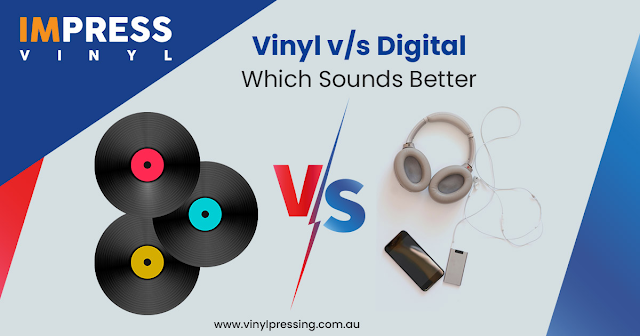Vinyl vs. Digital: Which Offers Superior Sound Quality
In the realm of music appreciation, one debate has endured through generations: vinyl versus digital. Both formats offer unique experiences, each with its own set of devotees. But when it comes to which sounds better, opinions are divided. Let's delve into the nuances of each format to understand the essence of their sound and the fervor they evoke among audiophiles.
Vinyl: The Analog Euphony
Vinyl records have been the cornerstone of music consumption for decades. There's a certain romance attached to the ritual of selecting a record, carefully placing it on a turntable, and delicately lowering the needle. Vinyl enthusiasts swear by the warmth and depth of the analog sound produced by this format.
One of the primary appeals of vinyl is its analog nature. Unlike digital recordings, which sample and store audio in discrete intervals, vinyl records capture sound in a continuous, analog format. This results in a richer, more organic sound characterized by warm tones and subtle imperfections.
Moreover, vinyl records often undergo meticulous mastering processes, with particular attention paid to preserving the dynamics and nuances of the original recording. This dedication to quality craftsmanship contributes to the unmistakable charm of vinyl sound.
Digital: The Precision of Pixels
In contrast to vinyl's analog charm, digital audio offers precision and consistency. Digital recordings are created by converting sound waves into binary code, which is then stored and reproduced with remarkable accuracy. This method eliminates the inherent imperfections associated with analog formats, resulting in clean, distortion-free sound reproduction.
Advocates of digital audio argue that its fidelity surpasses that of vinyl, especially in terms of dynamic range and frequency response. Digital recordings can capture a wider range of frequencies and preserve intricate details with greater precision, making them ideal for genres that demand pristine sound quality, such as classical music and electronic dance music (EDM).
Furthermore, digital formats offer unparalleled convenience and accessibility. With the advent of streaming services and high-resolution audio formats, music lovers can access vast libraries of music with just a few clicks, without the need for physical media or specialized equipment.
The Sound Debate: Subjectivity and Perception
So, which sounds better: vinyl or digital? The answer is inherently subjective and depends on various factors, including personal preference, listening environment, and the quality of playback equipment.
For many audiophiles, the allure of vinyl lies in its nostalgic appeal and the unique sonic characteristics it imparts to music. The subtle crackles and pops, the warmth of analog compression, and the tactile experience of handling physical records contribute to a sense of intimacy and authenticity that digital formats struggle to replicate.
On the other hand, digital audio enthusiasts appreciate the clarity, precision, and convenience afforded by modern technology. With high-resolution audio formats and state-of-the-art playback systems, digital music can rival, if not surpass, the sound quality of vinyl, especially in controlled listening environments.
The Verdict: Embracing Diversity
In the vinyl versus digital debate, there is no clear winner, nor should there be. Both formats offer unique experiences and cater to different preferences and sensibilities. Rather than viewing them as adversaries, we should embrace the diversity of audio formats and celebrate the richness they bring to our musical journey.
Whether you prefer the warm nostalgia of vinyl or the pristine clarity of digital, what ultimately matters is the emotional connection we forge with the music we love. So, dust off your turntable or fire up your digital music player, and immerse yourself in the timeless magic of sound. After all, in the end, it's the music that truly matters.



Comments
Post a Comment